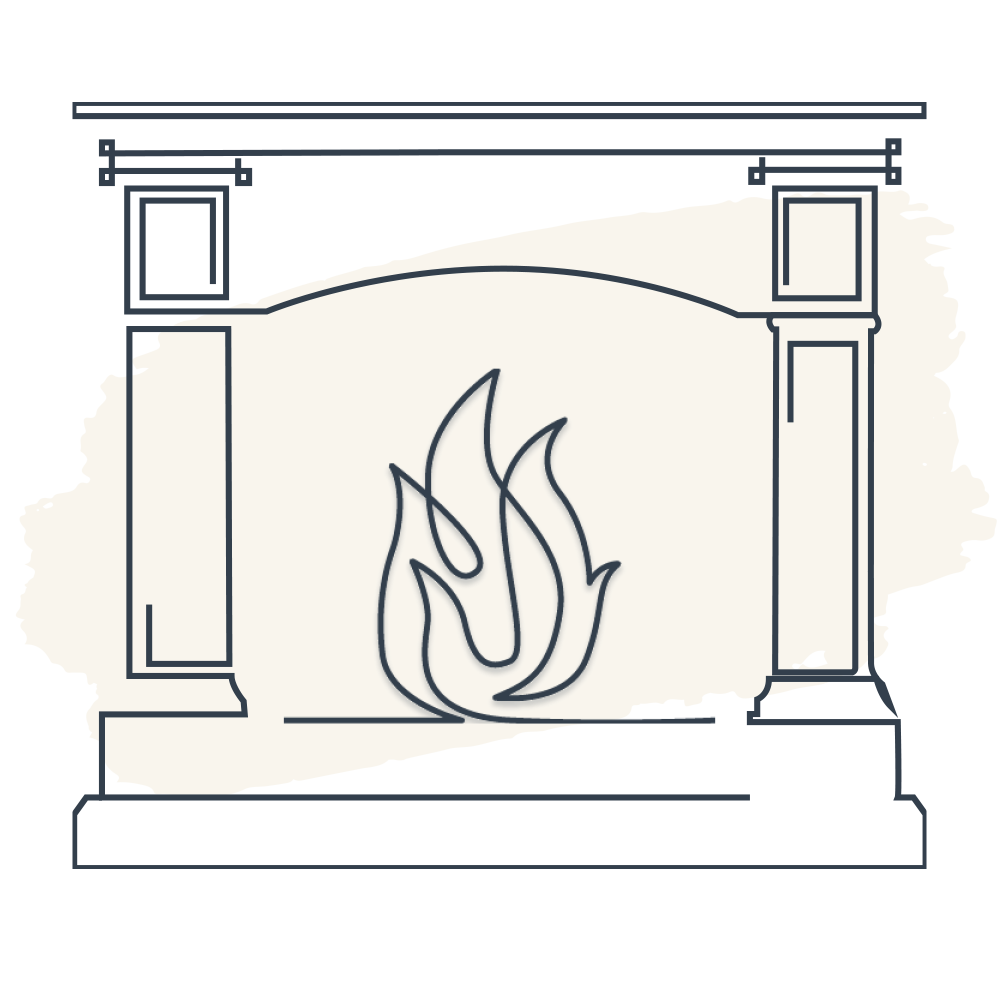We all need to keep our homes safe from the risks of fire, smoke, and gas. Simple steps such as installing smoke or carbon monoxide alarms, and scheduling a free gas safety check can help protect you and your loved ones.
Home Fire Safety
Serious fire incidents are becoming less common, but older people are statistically more at risk in the home. Fire safety should be a top concern.
In case of fire…
Get out, Get the Fire Service out, stay out. Dial 999.
Smoke Alarms
Smoke alarms are lifesavers and a key part of keeping your home safe. They should be installed on each floor of the home and well maintained. So dust and check them regularly, and change the batteries at least once a year.
Does your loved one have a smoke alarm?
Is it working?
Can they hear it?
When were the batteries last changed?
Specialist smoke alarms are available for people with hearing problems – when activated, they flash or trigger a vibrating pager or pad.
Cheshire Fire Service has more specific information about fire safety for older adults, including easy-to-use gas fires for the elderly and advice about open fires, escape routes, and smoking.
Most local fire services have a community service that offers free home visits to older adults. Often, these visits will extend beyond fire safety to include other safety advice, such as fall prevention.
Gas safety
Poorly fitted and badly maintained gas appliances or equipment can put you at risk of gas leaks, fires, explosions, and carbon monoxide poisoning. Therefore, a routine gas safety check is crucial.
1 in 6 homes has a dangerous gas appliance
Cadent Gas, the biggest expert gas organisation in the UK, has produced a factsheet specifically for adults looking after vulnerable people. It includes information on cooker safety, gas safety, and how to use the Gas Safe Register.
A suspected gas leak
This could be serious for you and anyone in your neighbourhood. Act fast.
If you smell gas act fast – phone 0800 111 999 – day or night
Safe gas appliances and the Gas Safety Register
If you suspect an appliance may not be working correctly, turn it off and contact a Gas Safe engineer to check it.
Always use a Gas Safe engineer to carry out any work on your home appliances. All Gas Safe registered engineers carry a Gas Safe ID card, which tells you whether they are registered for the specific job they need to do.
When were your loved one’s gas appliances last checked?
Locking cooker valves can help you ensure safe use of gas cookers
These safety valves allow care workers or Carents to control when gas can and cannot be used safely. They are designed to help vulnerable people retain their independence at home and provide reassurance to family, friends, and carers. They are provided and fitted free by your local gas distribution networks.
The Carents Room storecupboard has more information about these helpful valves.
Locking Cooker Valves
Locking gas cooker valves help people retain their independence at home and provide reassurance to family, friends and carers. Find out more.
Carbon Monoxide Safety
Any unsafe cooking or heating appliance that uses a fossil fuel (gas, oil, or coal,) can produce a highly poisonous gas called carbon monoxide (CO). It can make you feel seriously ill and can kill you quickly without warning. At lower levels, over longer periods, carbon monoxide can cause flu-like symptoms such as tiredness, headaches, nausea, dizziness, personality changes, memory problems, sight loss, and dementia.
If you suspect carbon monoxide
Phone 0800 111 999 – day or night
Turn off any appliances
Open the windows and leave the property
Seek urgent medical advice – call 111 or dial 999
Carbon monoxide is especially dangerous because it has no taste, colour, or smell.
Beware the Silent Killer
Older people (along with children and pregnant women) are more susceptible to harm following exposure to carbon monoxide. Anyone living with a circulation or breathing problem is also at increased risk because they are already more likely to have problems carrying oxygen to the heart or brain.
What to do to protect you and yours:
-
- Be alert – know the dangers, the symptoms and signs
- Ensure all gas appliances are serviced annually
- Fit a carbon monoxide alarm
Carbon monoxide alarms
A smoke alarm will NOT detect carbon monoxide. You need a special carbon monoxide alarm to detect increases in levels of this toxic gas and alert you to danger.
Our detailed article will tell you more about Carbon Monoxide (CO) and CO alarms.
Free eBook: Planning for an Emergency
Sadly, many Carents know that later life can be challenging for older adults living with ongoing health problems, often leading to physical, financial, or emotional difficulties.
By planning ahead, you can greatly reduce the risks and dangers of these vulnerable situations.
This eBook explores the most common challenges affecting Carents and the ones they love, and shows what you can do to lower risks, find support, and respond quickly when help is needed.
Simply complete the form and the eBook will be sent to you via email.
Stay in touch with The Carents Room
Stay informed and supported on your carenting journey with our newsletter, designed to provide you with:
- Practical Tips: Get expert advice and useful tips to help you navigate the challenges of caring for your elderly relatives.
- Latest Updates: Stay up-to-date with the latest news, research, and developments in health and care services.
- Community Insights: Hear from fellow carents, sharing their experiences and stories to support you.
- Exclusive Resources: Access special content and resources designed to make your role as a carer easier and more effective.
Join our community today and make carenting a smoother, more informed experience. Simply enter your email below to start receiving our carefully curated content straight to your inbox.
